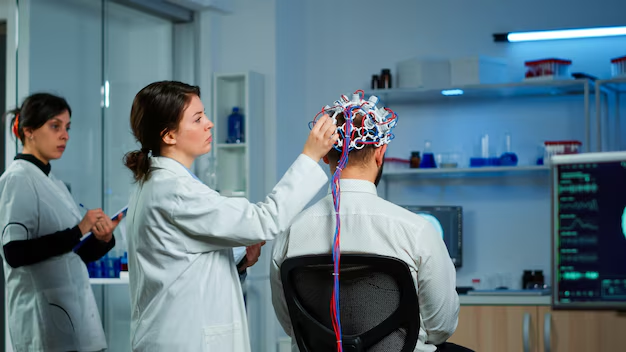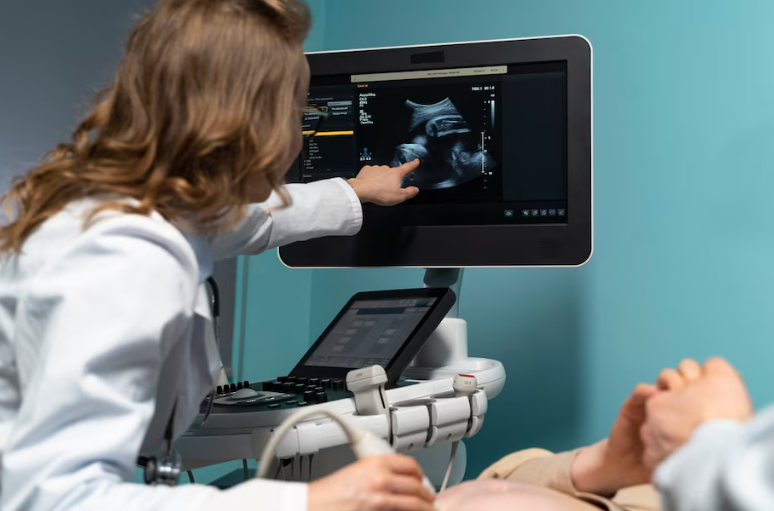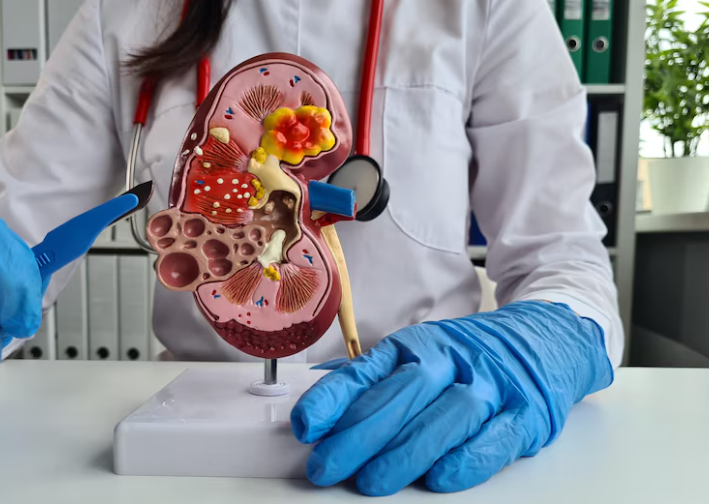 Courses
Courses
Explore Featured Courses
You'll find something to spark your curiosity and enhance
Fellowship and Advanced Certification Courses for MBBS Doctors and Healthcare Professionals
In today's rapidly evolving healthcare environment, medical education no longer ends with the MBBS degree. The modern doctor must combine clinical expertise, technological proficiency, and evidence-based knowledge to deliver world-class care. This need has given rise to Fellowship and Advanced Certification Courses—structured postgraduate programs that help medical professionals enhance clinical competence, gain specialization, and advance their careers in high-demand medical fields.
Whether a doctor aspires to excel in Critical Care Medicine, Dermatology, Cardiology, Emergency Medicine, or Radiology, these programs bridge the crucial gap between theory and clinical practice. They are designed to prepare practitioners for real-world healthcare challenges, with a focus on patient safety, diagnostics, and advanced therapeutic techniques.
The Growing Importance of Fellowship and Certification Programs
The landscape of healthcare has changed dramatically. The rise of super-specialized departments, advanced diagnostic tools, and new treatment modalities demands continuous learning. Traditional medical education often provides a strong foundation, but the hands-on, specialty-specific training required for modern practice is acquired through fellowships and certification programs.
Key reasons these programs are increasingly valued include:
- Skill Enhancement: Focused training under expert mentors in niche domains like Diabetology, Cardiology, or Aesthetic Medicine.
- Career Advancement: Opens doors to hospital leadership roles, academic positions, and global medical opportunities.
- Clinical Confidence: Practical exposure through simulations, live case discussions, and supervised clinical rotations.
- Global Recognition: Many programs follow international curricula and are accredited by global medical boards or universities.
- Bridging the Urban-Rural Gap: Trained fellows can deliver advanced care even in resource-limited settings, strengthening community healthcare systems.
Structure and Format of Fellowship Courses
Fellowship programs are typically designed for MBBS doctors, MD/MS postgraduates, and practicing clinicians who wish to upgrade their knowledge without interrupting their current professional commitments.
Key Features:
- Duration: 6 months to 1 years depending on specialization.
- Mode of Learning: Blended format combining online modules, virtual classes, clinical postings, and mentor-guided projects.
- Assessment: Regular assignments, case presentations, and final evaluations through viva or project submission.
- Certification: Awarded jointly by medical universities, international partners, or healthcare institutes.
Popular Fellowship Courses for MBBS Doctors
Modern fellowship programs are diverse, covering nearly every branch of medicine. Below are some of the most sought-after courses:
1. Fellowship in Critical Care Medicine
- Focuses on managing life-threatening conditions in ICU and emergency settings.
- Includes training in ventilator management, shock management, and ICU pharmacology.
- Ideal for doctors working in emergency, internal medicine, or anesthesia departments.
2. Fellowship in Cardiology / 2D Echocardiography
- Provides training in non-invasive cardiac diagnostics, ECG interpretation, and echocardiography.
- Helps doctors detect and manage cardiovascular diseases early.
- Especially beneficial for physicians, internists, and general practitioners.
3. Fellowship in Dermatology and Aesthetic Medicine
- Covers diagnosis and management of dermatological disorders, cosmetic procedures, and laser applications.
- Prepares doctors to meet the rising demand for skin and aesthetic care in clinical and cosmetic practice.
4. Fellowship in Diabetology and Endocrinology
- Trains doctors in comprehensive diabetes management, insulin therapy, and metabolic disorders.
- Enables primary care physicians to handle the growing diabetes epidemic effectively.
5. Fellowship in Emergency Medicine
- Equips practitioners with life-saving skills in trauma, poisoning, resuscitation, and acute medical care.
- Emphasizes triage systems, emergency protocols, and critical interventions.
6. Fellowship in Radiology and Imaging
- Focused on modern diagnostic imaging, ultrasound, and CT interpretation.
- Includes hands-on experience in diagnostic and interventional radiology.
7. Fellowship in Obstetrics and Gynaecology
- Trains doctors in reproductive health, obstetric emergencies, and gynecologic procedures.
- Offers a comprehensive understanding of women's health and perinatal care.
8. Fellowship in Family Medicine
- Strengthens a doctor's ability to provide holistic care to patients of all ages.
- Covers preventive care, chronic disease management, and community health principles.
Advanced Certification Courses in Healthcare
While fellowships are more in-depth, Advanced Certification Courses serve as short-term, focused programs aimed at enhancing specific clinical or diagnostic skills. These programs typically last 3–6 months and are ideal for continuous professional development.
Popular Certification Programs:
- Advanced Certificate in 2D Echocardiography
- Provides competency in performing and interpreting echocardiograms.
- Advanced Certificate in Emergency and Trauma Care
- Focuses on pre-hospital care, resuscitation techniques, and trauma stabilization.
- Advanced Certificate in Clinical Research and Pharmacovigilance
- Trains healthcare professionals in research design, drug safety, and ethics.
- Advanced Certificate in Diabetes and Metabolic Disorders
- Offers evidence-based management approaches for chronic metabolic diseases.
- Advanced Certificate in Cosmetic Dermatology and Lasers
- Prepares practitioners for modern cosmetic procedures, anti-aging treatments, and skincare technology.
Why Healthcare Professionals Should Pursue These Programs
1. Career Flexibility and Global Mobility
Fellowships and certifications open global opportunities in hospitals, research centers, and private practice. Many international healthcare systems recognize these advanced qualifications.
2. Academic and Clinical Recognition
Doctors with specialized fellowships often become consultants, faculty members, or clinical trainers, enhancing both professional stature and income potential.
3. Enhanced Patient Care
Specialized training enables doctors to make quicker, more accurate diagnoses and deliver safer, evidence-based treatment.
4. Networking and Mentorship
These programs connect participants with experts and mentors across the world—fostering lifelong professional relationships.
5. Integration with Technology and AI
Modern courses now include modules on digital health, telemedicine, and AI in diagnostics, keeping healthcare professionals future-ready.
Learning Methodologies
Contemporary fellowship and certification programs adopt a blended learning model:
- Online Learning Portals: Interactive lectures, case-based modules, and multimedia tutorials.
- Clinical Training: Observerships or rotations under senior consultants in partner hospitals.
- Simulated Learning: High-fidelity mannequins and digital simulations for skill-based learning.
- Assessments: Regular formative evaluations ensure consistent progress.
This flexibility allows working doctors to balance professional duties with learning—making lifelong education feasible and practical.
Impact on the Healthcare Ecosystem
Fellowship-trained doctors significantly contribute to improving healthcare delivery by:
- Reducing patient referral rates to tertiary centers.
- Enhancing diagnostic efficiency in community and district hospitals.
- Promoting preventive healthcare and chronic disease management.
- Supporting rural health infrastructure through trained professionals.
These programs, therefore, not only upgrade individual skills but also strengthen the healthcare system as a whole.
Choosing the Right Fellowship or Certification Program
When selecting a program, doctors should consider:
- Accreditation and institutional reputation.
- Clinical training opportunities and mentor access.
- Curriculum relevance to current healthcare needs.
- Recognition by national or international medical boards.
- Learning flexibility and post-course career support.
The future of medicine belongs to continuously learning professionals who combine compassion with cutting-edge knowledge. Fellowship and Advanced Certification Courses empower MBBS doctors and healthcare professionals to remain clinically relevant, globally competent, and professionally fulfilled.
By investing in specialized training, doctors not only enhance their individual expertise but also contribute to the advancement of healthcare standards—ensuring that every patient receives quality, modern, and compassionate care.
These programs are more than educational pathways—they are career accelerators and instruments of transformation for the healthcare community.














































